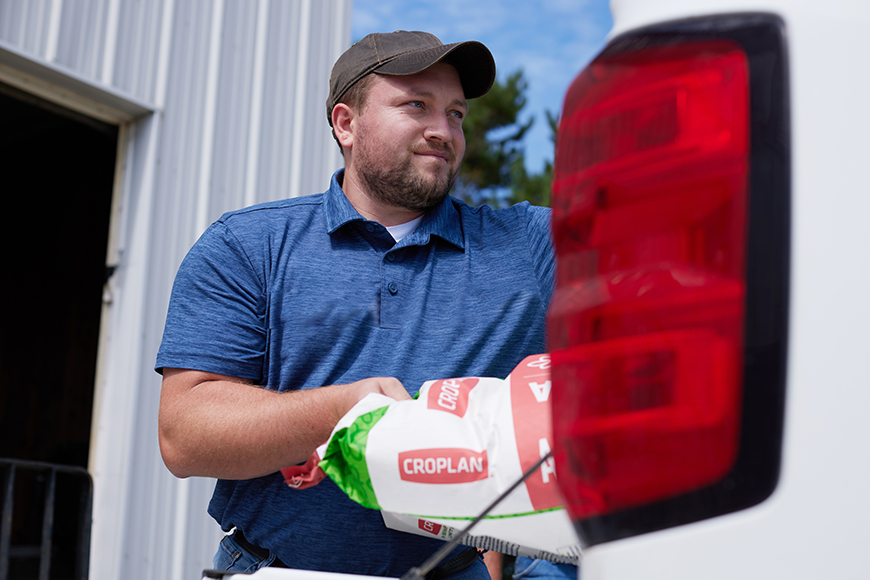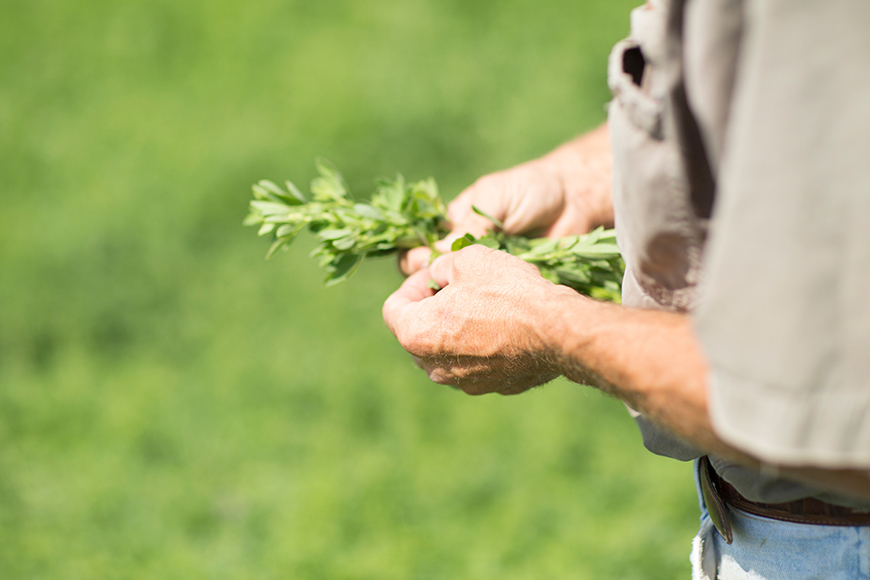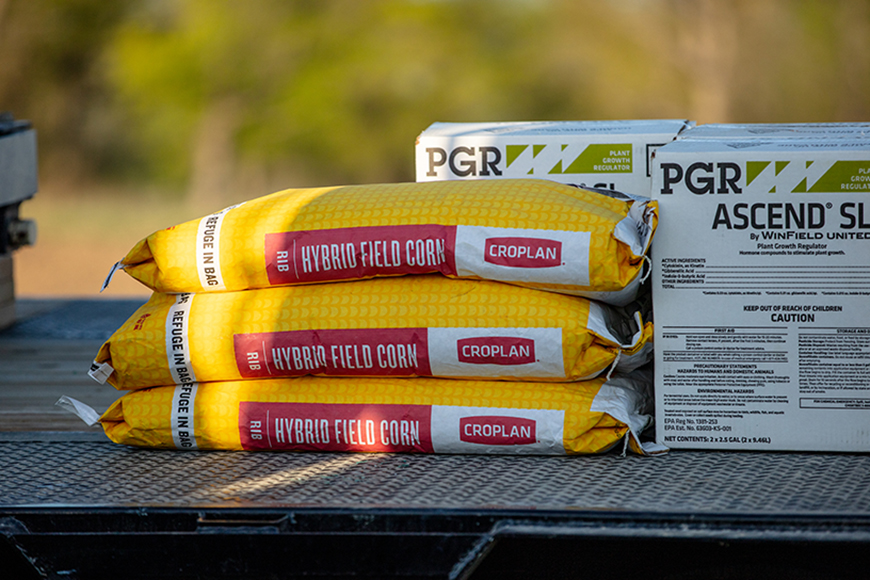Help Put Yourself In A Profitable Position With CROPLAN® Winter Canola
Mick Miller
Winter Canola Product Manager

As the product manager for CROPLAN® winter canola, I enjoy reminding growers about the many agronomic benefits that come with including it in their rotation. This year, winter canola provides farmers with another huge economic advantage that makes it an increasingly attractive choice.
With oilseed crop futures trading at all-time highs, canola is currently trading in the range of $14 to $15/bu ($28 to $30/cwt) and futures are nearing $17/bu ($34/cwt).1 This means producers could have a fantastic opportunity to reap the rewards next summer if they rotate to winter canola now. Whether you are looking for a quality Roundup Ready®, SURT® or conventional variety with G2FLEX™ technology with high yield potential, the CROPLAN winter canola lineup has you covered. Let’s take a closer look at these production systems and where they fit best.
Roundup Ready Winter Canola
CROPLAN winter canola with the Roundup Ready trait is an ideal rotational fit for wheat-fallow acres or fields that don’t have any plant-back restrictions. Seeding these fields to Roundup Ready winter canola introduces a completely different cropping option and gives farmers the ability to target a wide spectrum of weeds with a glyphosate product like Cornerstone® Plus herbicide.
Cornerstone Plus is particularly strong on tough winter annual grasses like cheat and feral rye, plus any grassy weeds that have developed resistance to the Group 2 herbicides that are usually used on wheat and many other crops. Reducing this competition while winter canola is in a field allows you to plant wheat or pulse crops back into a cleaner field for the next rotation. We have one variety of CROPLAN winter canola with the Roundup Ready-only trait: CP320WRR.
Roundup Ready Winter Canola Plus SURT (Sulfonylurea Residual Tolerant)
Sulfonylurea products like Ally®, Glean® or Express® herbicides are often used to control weeds in wheat and other cereal crops. While effective, their long residual activity prohibits producers from enjoying the benefits of rotating into Roundup Ready winter canola unless they plant a variety that is sulfonylurea residual tolerant (SURT). We have two such varieties in the CROPLAN winter canola lineup: CP115WR and CP225WRR.
GFLEX Conventional Winter Canola (Group 2 Flexible Residual Tolerant)
Producers looking to tap into the non-GMO canola markets have long been handcuffed when it comes to rotating to winter canola because, depending on the crop protection history of previous wheat and pulse crops, they’ve been limited to planting into fields without certain plant-back restrictions.
For example, if you used a product like Pursuit® or Beyond® herbicide on your recent small grains or pulse crop, canola wasn’t a viable option. And wheat-fallow rotations that traditionally utilized Group 2 products like Ally and Glean herbicide prevented growers from working many canola varieties into their rotation for more than 4 years.
But now, thanks to Group 2 Flexible (G2FLEX™) residual tolerance technology, we have a conventional canola variety that can be planted right behind wheat in soils with Group 2 herbicide residuals, including imidazolinones, sulfonylureas, sulfonamides and triazolopyrimidines. As we announced in the last issue of Beyond Seed® magazine, WinField® United partnered with the University of Idaho to become the exclusive provider of the only canola variety with the G2FLEX trait: CP1022WC.
Conventional Racehorse
The new CROPLAN CP1077WC winter canola is the fifth and final product in the CROPLAN® winter canola lineup. What it lacks in herbicide tolerance, it makes up for with excellent yield potential, making this racehorse variety an excellent selection for your most productive acres.
Help Improve Future Wheat Yields
There are a number of benefits associated with including winter canola in your crop rotation. Along with its value as a cash crop, planting canola helps break up the cycle of weeds, insects and disease that are present in wheat-on-wheat fields. This gives growers the opportunity to start fresh when they return to wheat a year or two later. In addition to allowing it to utilize nutrients lower down in the soil profile, canola’s large taproot helps increase water infiltration and improve the growth and soil penetration of subsequent crop roots. Plus, canola is a favorable environment for pollinators.
All of this contributes to higher yield potential in subsequent wheat crops. In fact, Kansas State University Research and Extension reports that winter wheat yields following canola have shown a 10-25% increase compared to wheat following wheat. And, in some instances where wheat has been grown in monoculture for decades, wheat yields have increased more than 50% the first year following canola.2
The future of winter canola is bright, as we have some exciting new traits and technologies coming in the pipeline over the next few years. Our breeding partners continue to work hard, providing producers with better yield potential, better persistence and better profitability. If you’re interested in taking advantage of all that winter canola offers, contact your local WinField United retailer. They’ll help you select the right CROPLAN varieties for your acres.
1 Pricing data based on quotes from Viterra canola processing facility in Warden, WA as of 6/3/21.
2 Great Plains Canola Production Handbook, K-State Research and Extension, June 2018.
All photos are either the property of WinField United or used with permission.
© 2021 WinField United. Important: Before use always read and follow label instructions. Crop performance is dependent on several factors many of which are beyond the control of WinField United, including without limitation, soil type, pest pressures, agronomic practices and weather conditions. Growers are encouraged to consider data from multiple locations, over multiple years and to be mindful of how such agronomic conditions could impact results. CROPLAN®, Answer Plot®, Beyond Seed® and WinField® are trademarks of WinField United. G2FLEX™ is a trademark of the University of Idaho and G2FLEX™ products are available exclusively through WinField Solutions, LLC. Roundup Ready® and SURT® are trademarks used under license from Bayer Group. Beyond® and Pursuit® are trademarks of BASF. Ally®, Glean® and Express® are registered trademarks of FMC Corporation.
IF YOU LOVE OUR INSIGHT, YOU’LL LOVE OUR ROI POTENTIAL
Every successful harvest starts with a seed. It just can't end there. Choose which high-performing seed products you’ll start with this season.






